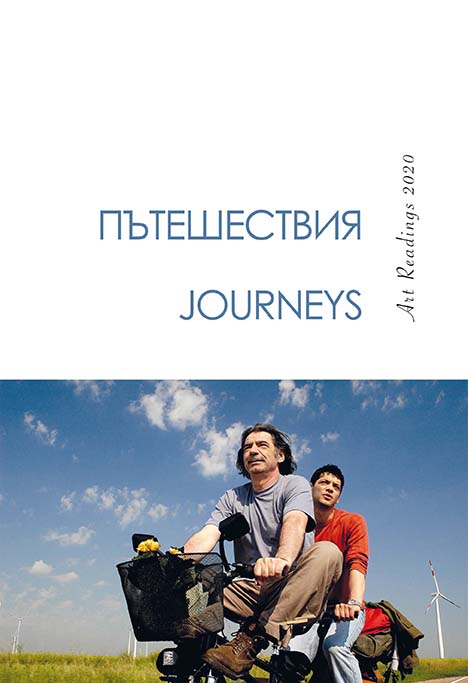Нови форми на изповедални документални филми,създадени въз основа на лични архиви – едно пътуване на авторите към самите себе си
New forms of confessional documentaries based on personal archives: a journey of the authors to themselves
Author(s): Maria AverinaSubject(s): Fine Arts / Performing Arts, Film / Cinema / Cinematography
Published by: Институт за изследване на изкуствата, Българска академия на науките
Summary/Abstract: The paper considers the broader access to technology, which led to a massive accumulation of personal archives as a prerequisite for the unprecedented increase in personal documentaries. At the same time, another cultural phenomenon is mentioned as a reason for the proliferation of first-person documentaries – the fact that many people, including film directors, more and more try to understand themselves through a more in-depth look at the truth about their families and their childhood. The paper examines the Israeli documentary Diary by David Perlov (1973–1999) and the American documentary Tarnation by Jonathan Caouette (2003). The text analyses and juxtaposes the directors’ different approaches in creating their documentaries based on personal archives. Both films are constructed as a journey of the authors towards their inner selves. These journeys are both metaphorical and literal – to the places of the authors’ youth and childhood. David Perlov’s Diary is based on the director’s poetic observations of the world around him and of the life of his family. During these observations, the author is present only as a voiceover that is leading us throughout the film story. Apart from the everyday observations, the author conveys on the screen in associative-poetical key some inner psychological states such as depression and insomnia. The paper examines Perlov’s poetic approach to filmmaking through the prism of Annette Kuhn’s idea that “due to the temporal dislocation of memory when creating their documentaries, the filmmakers can effectively deploy a method akin to the rhythmic structures and non-linear fragmented narrative of poetry rather than sequentially organise a linear narrative.“ The overall structure of Diary, which at first sight resembles a flow of thought lacking a clear dramaturgical line, consists of different subplots, which are solid pivotal points that are helping this seemingly non-linear narrative to progress. Such subplots are the storylines about the director’s mother and father, his returns to the cities of his past, his two daughters’ lives from their teenage years to their mature years. The paper analyses the overall storyline of all nine series, and a conclusion is made that the film has a polyphonic narrative that helps all the nine series be perceived as one whole. The paper explores the subtle intertwining of the two main narratives in the film – the personal storyline and the line about Israel’s social and public life. The alternating of these two threads makes the film’s construction more diverse and does not allow the personal contemplative line to overweight with its monotony. The other film explored in the paper is Joanthan Caouette’s Tarnation, which unlike the integral Diary of Perlov, is constructed from different personal archives – home videos, photos, answering machines messages, letters, and telegrams. Also, some new interviews and scenes have been additionally shot for the creation of the film. Despite its eclectic style, Tarnation has a clear linear storyline, which comprises a journey back to Jonathan’s childhood with all its traumatic moments that he lived through together with his mum.
Journal: Изкуствоведски четения
- Issue Year: 2020
- Issue No: 2
- Page Range: 306-314
- Page Count: 9
- Language: Bulgarian
- Content File-PDF

